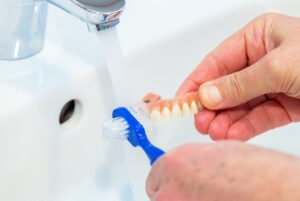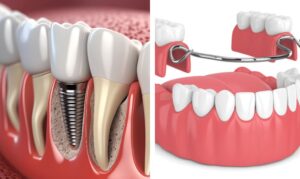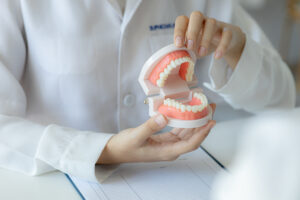Oral and maxillofacial surgery might sound intimidating, but if you’re dealing with impacted wisdom teeth, jaw issues, or facial trauma, it could be the solution you need. Whether you’re just curious or preparing for a procedure, this complete guide will walk you through everything about oral and maxillofacial surgery in Malaysia, from what it is to what to expect before, during, and after treatment.
What is Oral and Maxillofacial Surgery?
Oral Surgery vs. Maxillofacial Surgery: What’s the Difference?
You may have seen these terms being used interchangeably online. For simplicity’s sake, let’s break it down.
- Oral surgery deals with procedures involving the teeth, gums, and soft tissues inside your mouth.
- Maxillofacial surgery, on the other hand, goes beyond the mouth. It addresses conditions affecting the jaw, face, head, and neck.
While the two often overlap, maxillofacial surgery is typically more complex and may require general anesthesia. In Malaysia, both types are commonly performed in private dental clinics like Fresh Dental Care Kepong or government hospitals, depending on the nature of the case.
Maxillofacial Surgery: What Makes It Different?
Maxillofacial surgery treats complex conditions involving the jaw, skull, and face. These include jaw misalignment, facial injuries, or tumors and cysts. Unlike basic oral surgery, these procedures often require hospital settings, specialized imaging, and longer recovery periods.
Post-surgical care is similar but may involve more follow-ups, especially for facial reconstruction or tumor removal. The results are often permanent, and with proper care, long-term function and appearance can be greatly improved.
Common Oral Surgery Procedures in Malaysia

Oral surgery is more common than most people think, especially in Malaysia where dental and facial health are taken seriously. Here’s what you need to know about the most frequently performed procedures.
Tooth-Related Procedures
When a tooth is beyond saving due to decay or trauma, tooth extraction becomes the only option. It’s a relatively quick procedure and one of the most common oral surgeries around.
For many young adults, wisdom tooth removal is almost a rite of passage. If left untreated, impacted wisdom teeth can lead to infections, pain, or crowding of other teeth. Most Malaysians choose to remove them between ages 18 to 25 to avoid complications.
Another lesser-known but important procedure is an apicectomy, which involves removing the tip of a tooth’s root when a root canal treatment hasn’t completely cleared the infection.
Some patients have impacted teeth, especially canines, that don’t erupt properly. Oral surgery is used to expose and guide these teeth into place, often as part of an orthodontic plan.
Gum and Bone Procedures
If you’re planning to get dental implants but your jawbone isn’t thick or strong enough, a bone graft might be necessary. It adds volume to the bone, creating a solid foundation for implants.
Gum grafting is used to treat receding gums. By covering exposed roots, it reduces sensitivity and improves both function and appearance.
For those with severe gum disease, periodontal surgery is the next step when deep cleaning or medication isn’t enough. It allows your dentist to clean infected pockets and reshape the gum tissue.
A sinus lift is another procedure tied to implants, especially in the upper jaw. It involves lifting the sinus membrane and placing bone to support future implant placement.
Restorative & Implant Procedures
Dental implants have become one of the most popular procedures in Malaysia. They function like natural teeth and are anchored into your jawbone, making them more stable and long-lasting than dentures.
If calcium deposits are blocking your salivary glands and causing pain, a minor surgery can be done to remove the salivary gland stones and relieve the swelling.
Corrective Jaw and Facial Procedures
Orthognathic surgery, also known as jaw surgery, is used to correct misaligned jaws or bite issues. It can improve appearance, speech, chewing, and breathing. This procedure often goes hand-in-hand with braces.
Children born with cleft lip or palate undergo cleft repair surgery, usually at a young age. This life-changing procedure improves speech, eating, and appearance.
In cases of accidents or trauma, facial fracture repair is sometimes necessary. These surgeries help restore facial structure and function, especially when bones around the eyes, cheeks, or jaw are damaged.
Early intervention is also key for oral cancer. Surgery may be needed to remove suspicious lumps, ulcers, or growths that don’t heal over time.
Specialised Maxillofacial Surgeries
Struggling with loud snoring or interrupted sleep? For people with obstructive sleep apnea who don’t respond to Continuous Positive Airway Pressure (CPAP) machines, surgical options are available to open up the airway.
On the other hand, temporomandibular (TMJ) disorders, which affect the joint that connects your jaw to your skull, can be painful and even debilitating. When other treatments fail, surgery may be the best solution to relieve pain and restore movement.
And finally, oral surgeons also handle lumps, bumps, and cysts in the mouth or jaw. While these are usually harmless, removing them can prevent further issues and provide peace of mind.
Before You Book Surgery: 6 Things You Should Know

- Arrange for a Ride Home
Whether you’re getting local or general anesthesia, it’s best not to drive after surgery. Bring a friend or book an e-hailing ride. - Fasting is Usually Required
Especially for general anesthesia. No food, drinks, smoking or even vaping for at least six hours before your appointment. - Have Soft Foods Ready at Home
Stock up on porridge, mashed potatoes, or smoothies. Avoid anything crunchy or spicy for at least a week. - Block Off Time to Rest
You’ll want to rest for a few days post-procedure. Healing is faster when your body’s not stressed. - Stick to the Instructions
Your dentist will provide pre-op and post-op guidance — follow them to avoid complications. - Plan Your Budget
Oral surgeries in private clinics can range from RM 500 to RM 5,000 depending on the complexity. Government clinics are more affordable but may involve longer wait times.
What Happens Before and After Surgery?

At Fresh Dental Care Kepong, it all starts with a consultation. Your dentist will do an oral exam, take X-rays, and explain the procedure, risks, and costs.
You’ll also be told about anesthesia options. Local anesthesia is common for minor procedures, while general anesthesia or sedation may be used for longer surgeries.
After your procedure, you may experience swelling, discomfort, or mild bleeding. Painkillers and antibiotics are usually prescribed, and soft foods are recommended during recovery. Most people return to normal activities within a few days to a week, depending on the procedure.
Keep an eye out for signs of complications — like increasing pain, pus, fever, or excessive bleeding — and don’t hesitate to contact your clinic if something feels off.
Finding the Right Surgeon in Malaysia
Choosing the right surgeon matters. Look for:
- A solid track record and specialized experience
- Access to modern tools and techniques
- Clear communication and patient reviews
At Fresh Dental Care Kepong, our oral surgeons are trained in both routine and complex procedures. We’re happy to answer your questions during your consultation and guide you every step of the way.
Final Thoughts: Choosing the Right Surgery For Your Needs
Whether you opt for affordable oral and maxillofacial surgery, finding the right solution depends on your budget, lifestyle, and oral health needs.
If you’re considering getting oral and maxillofacial surgery in Kepong, book a consultation with Fresh Dental Care to explore your options. Our team is dedicated to helping you restore your smile with comfortable, long-lasting dentures.
For appointments, WhatsApp us today and let’s bring back your confidence in smiling!
Frequently Asked Questions (FAQ)
How long is recovery after oral surgery?
It depends. Minor surgeries take a few days, while complex jaw surgeries may require several weeks.
Will I have scars?
In most oral surgeries, incisions are made inside the mouth, so visible scarring is rare.
Is general anesthesia used?
Yes, for longer or more complex procedures. Short procedures usually just need local anesthesia.
Can I sleep through the procedure?
If you choose sedation or general anesthesia, yes.
How can I manage pain afterward?
Follow your dentist’s advice, take prescribed medication, and use a cold compress to reduce swelling.





